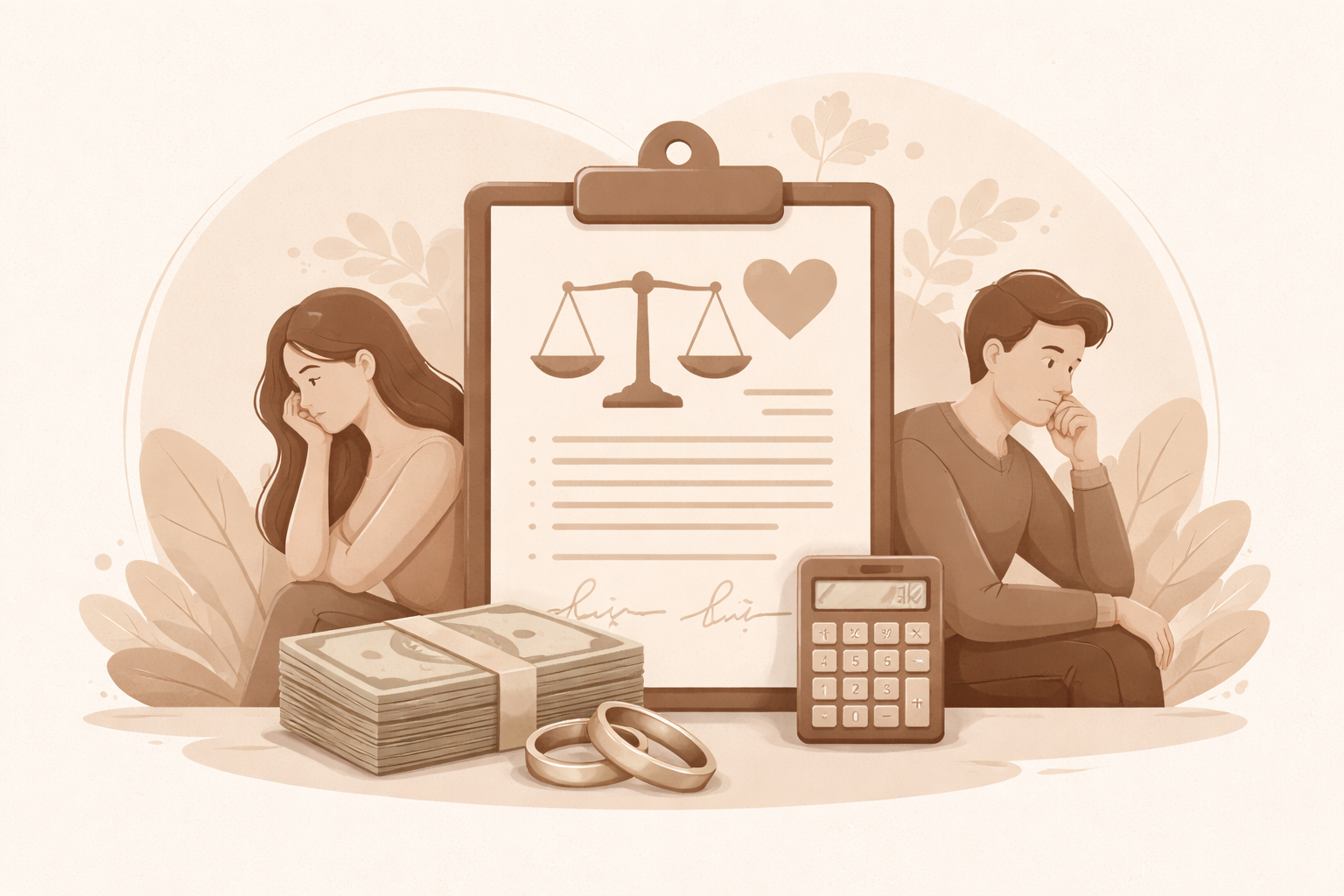December 27, 2025
Divorce changes everything, but few aspects cause as much anxiety as finances. For many couples in Reno, Minden, and across Northern Nevada, the biggest financial question mark is alimony. Whether you anticipate needing support to get back on your feet or are worried about the long-term obligation of paying it, understanding Nevada law is crucial. In Nevada, alimony (legally referred to as spousal support is not guaranteed, and perhaps more importantly, it is not calculated using a simple mathematical formula. It is highly discretionary, meaning the judge has significant power in deciding the outcome. Here is a guide to how spousal support works in Nevada and why having an experienced Northern Nevada family law attorney is essential to protecting your financial future. The Big Question: Is There a Nevada Alimony Calculator? The short answer is no. Unlike child support, which generally follows a strict percentage based on income and the number of children, Nevada law does not provide a calculator or a set percentage for determining spousal support. You cannot simply plug two incomes into a spreadsheet and get a definitive answer. Instead, Nevada judges must make what they call a "just and equitable" award based on the specific circumstances of your marriage. Because there is no formula, the skill of your attorney in presenting your financial reality to the court is often the deciding factor in how much is paid, and for how long. Key Factors Northern Nevada Judges Consider Since there is no calculator, Nevada Revised Statute (NRS) 125.150 provides a list of factors that judges must consider when deciding if alimony should be awarded. If you are facing a divorce in courts ranging from Reno to Carson City, the judge will look at a holistic picture of your marriage, including: 1. The Length of the Marriage This is often the most heavily weighted factor. Generally, short-term marriages (under 5-7 years) are less likely to result in long-term support awards compared to marriages lasting 20 years or more. 2. The Financial Condition of Each Spouse The court looks at the disparity in income. Does one spouse earn significantly more? Does the other spouse have the ability to become self-supporting? The goal is usually to bridge the gap, not necessarily equalize income perfectly. 3. The Age and Health of Both Parties A spouse nearing retirement age or suffering from poor health who cannot enter the workforce will have a stronger claim for support than a young, healthy spouse. 4. Career Sacrifices and Contributions Did one spouse put their career on hold to raise children or manage the household while the other advanced their career? The court considers the contribution of a "homemaker" as having significant economic value. 5. The Standard of Living During the Marriage While not a guarantee, the court does consider the lifestyle the couple enjoyed together when determining what is "just and equitable." 6. Property Division How the marital assets (houses, retirement accounts, businesses) are divided can impact alimony. If one spouse receives a larger share of income-producing assets, they may need less support. Types of Spousal Support in Nevada Alimony is rarely a "forever" obligation anymore. Modern Nevada courts tend to favor arrangements that help a lower-earning spouse become self-sufficient. Temporary Support: Awarded during the divorce process to keep the status quo and ensure bills are paid until a final settlement is reached. Rehabilitative Support: This is very common. It is awarded for a specific period to allow a spouse time to obtain job training, education, or experience to re-enter the workforce and become self-supporting. Lump-Sum Alimony: Sometimes, parties agree to a one-time buyout payment instead of ongoing monthly payments to achieve a "clean break." Permanent (Long-Term) Alimony: Generally reserved for long-term marriages where, due to age or health, one spouse will likely never be able to be fully self-supporting.. How a Strategic Reno & Minden Family Law Attorney Helps Because Nevada alimony law is based on subjective factors rather than a rigid formula, the outcome relies heavily on preparation and strategy. At the Law Offices of Maximilian A. Stovall, we understand the local courts in Reno, Minden, and surrounding Northern Nevada communities. We know how local judges tend to weigh these different financial factors. Whether you are seeking support or defending against an unfair claim, we help by: Gathering Evidence: Meticulously documenting income, expenses, career sacrifices, and standard of living. Developing a Strategy: Crafting a compelling argument tailored to the specific factors that favor your position. Negotiating Fairly: Working toward a realistic settlement out of court that secures your financial stability. Litigating Fiercely: If a fair agreement cannot be reached, we are prepared to advocate vigorously for your financial rights before a judge. Don't leave your financial future to chance. Contact Us Today for Clear Financial Guidance → If you are facing divorce and have questions about alimony in Northern Nevada, contact the Law Offices of Maximilian A. Stovall today to schedule a consultation. We will help you understand your rights and develop a smart strategy for moving forward.




